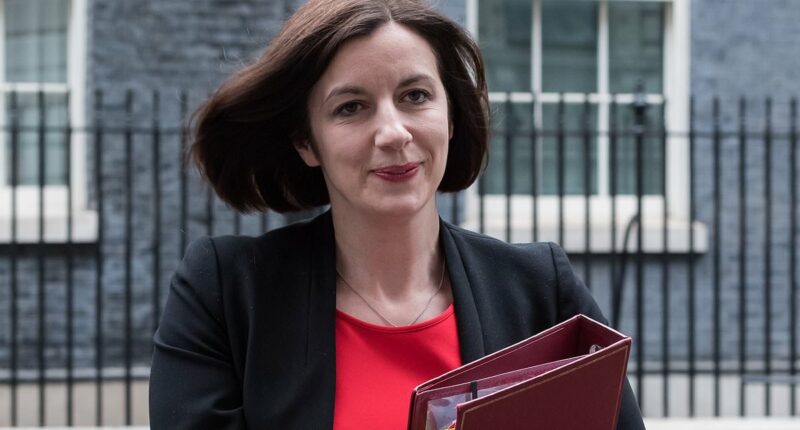Share this @internewscast.com
Governments have ‘failed white working-class students,’ the Education Secretary Bridget Phillipson has said.
As students eagerly await their GCSE results on Thursday morning, it has been highlighted that four out of five children from white working-class backgrounds face difficulties with English and math skills.
Ms Phillipson said that as a result, Britain is falling behind as the UK’s productivity suffers and so does the economy.
In 2024, only 19 percent of white British working-class students managed to secure a strong pass in math and English GCSE, a pattern that has persisted since 2017.
“It’s shocking, and I refuse to stand idly by and let these statistics worsen. It’s not only the future prospects of these children at stake but also the overall well-being of our society. We are losing vast amounts of human potential and productivity.
Fewer than one in five white British students on free school meals are leaving school equipped with the necessary math and English skills for work and life success.
‘This data goes back to 2017. Alarmingly, it looks almost identical today to how it did then,’ she said writing for The Telegraph.
The Education Secretary mentioned that addressing this issue will concentrate on boosting school attendance since there is a belief that high absenteeism significantly contributes to the poor performance among white working-class pupils.

Governments have ‘failed white working-class students,’ the Education Secretary Bridget Phillipson has said
Officials are concerned that failing to equip young people with essential skills will further erode Britain’s already low productivity rates and might result in fewer individuals joining the workforce and more relying on benefits.
It comes as a study from the Institute for Government (IfG) suggests ethnicity may be a factor in how badly poverty impacts on educational attainment.
The think tank said disadvantaged white pupils have ‘particularly poor educational outcomes’ in terms of attainment in Year 6 Sats.
Official data showed only 3 per cent of British white pupils from low income families attend a top university – one of the least successful groups.
Last week, Ms Phillipson said it was a ‘national disgrace’ that so many white working class children were ‘written off’ and failed to achieve their potential.
The IfG report referenced previous research which found this demographic is overrepresented in rural and coastal areas where there is ‘lower funding… higher teacher vacancies, longer travel times and worse digital infrastructure’.
The report adds: ‘Factors from children’s home environments, such as varying aspirations among parents from different ethnic backgrounds, also likely play a role.’
The report examined the councils in England and identified the ‘bottom fifth’ for performance of disadvantaged pupils.

As pupils wait in great anticipation for GCSE results day this Thursday morning, Ms Phillipson warned that four-fifths of children from white working-class backgrounds struggled with basic English and maths skills. Pictured: Results day, 2024
It found the vast majority of these had ‘above average shares’ of white children within their population of disadvantaged pupils.
On average nationally, 67 per cent of disadvantaged primary school pupils are white.
The think tank has said tackling high absence rates – particularly among disadvantaged pupils – ‘will be key’ to narrowing educational inequalities.
A Department for Education spokesman said: ‘Tackling the baked-in inequalities in our education system will take time, but through our Plan for Change this government is taking action against the root causes that we know are holding young people back.
‘We are driving high and rising standards for every child through the expert-led Curriculum and Assessment Review, new RISE teams and strengthened school accountability.
‘This comes alongside work to tackle disadvantage including expanding free school meals, rolling out free breakfast clubs and revitalising family services in every local authority.
‘But we know there is more to do, which is why we will bring about the reforms needed through our Schools White Paper later this year to create an education system where every child can thrive, regardless of their background.’

















